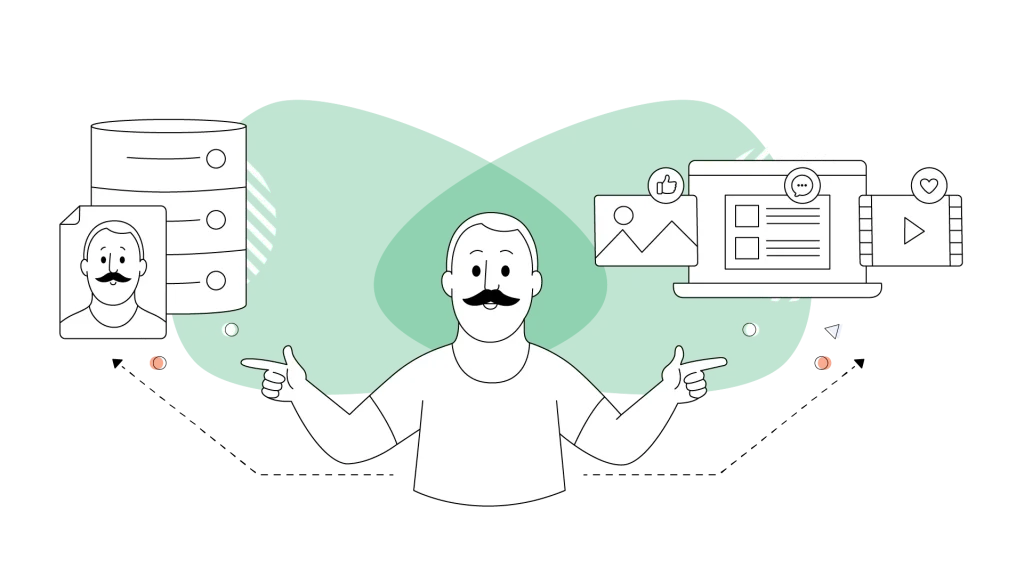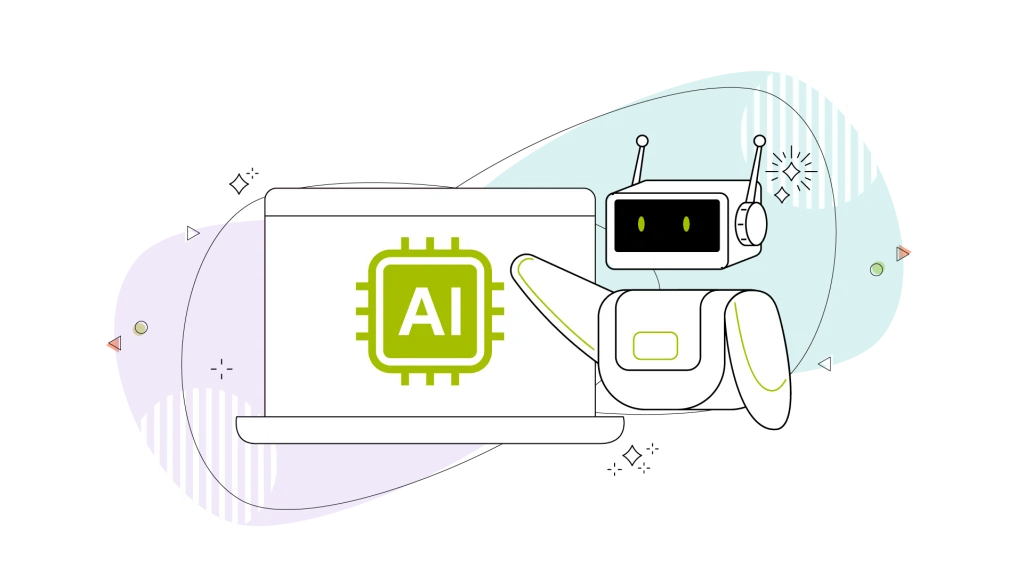Podcasts are everywhere, and there’s no better time to dive into this exciting industry than today. With an estimated 546 million podcast listeners globally, it’s a great way to create and share content while building a business. But where do you begin?
In this post, we’ll walk you through every step of starting a podcasting business, from creating your show to turning it into a profitable venture.
- Why You Should Start a Podcasting Business
- Key Benefits to Starting a Podcasting Business
- Best Practices for Podcasting
- How to Monetize a Podcasting Business
Why You Should Start a Podcasting Business
Podcasting offers tons of possibilities, making it a lucrative option for entrepreneurs and knowledgeable people that have something interesting to say. It allows you to share your passion, build authority in an area, and connect with an audience on a deeper level. Plus, podcasting is relatively inexpensive to start compared to other forms of media production.
But why exactly should you consider starting a podcasting business?
- Easy market to enter: You don’t need expensive equipment to get started. A basic microphone and free editing software can suffice for most setups. For vodcasts, as they’re known, you’ll also need a simple camera setup.
- Growing market: The number of listeners continues to grow, providing a vast potential audience.
- Monetization opportunities: From sponsorships and ads to offering premium content during the show, there are several ways to make money.
- Flexibility: You can record episodes from anywhere, giving you the freedom to work remotely.
Key Benefits to Starting a Podcasting Business
Now, let’s cover the benefits of starting a podcast business.
1. Start with Your Niche
Before diving into podcasting, choose a calling you’re passionate about. Your podcast should target a specific audience that resonates with your content. Whether it’s tech, gaming, health, personal finance, or simply storytelling, ensure the content aligns with your interests and expertise.
2. Find What Your Target Audience Likes & Dislikes
Understanding your audience is the alpha and the omega. Who are they? What are their pain points?
Conduct surveys, browse social media, and analyze popular podcasts in your slot, check public forums and open boards like Reddit to understand what your target listeners want.
3. Develop a Podcasting Business Plan & a Calendar
A solid business plan will set the foundation for success. Create a posting calendar so you’ll line up your episodes with popular dates and milestones to spice things up. Include the following components:
- Mission and vision: Why does your podcast exist? What will you offer? What potential customers will it be for?
- Monetization strategy: Decide how you plan to generate income (ads, sponsorships, Patreon, etc.). This should be planned ahead of time so you have plenty of time to choose as you go.
- Content strategy: Plan out your episode themes and schedule by making a calendar or printing one out if you like the classic pen and paper.
4. Choose Your Podcast Name & Branding
Your podcast name should be memorable, easy to pronounce, and reflect your show’s tone. Once you have a name, create branding materials such as a logo design and cover art. Consistent branding helps attract listeners and establishes credibility.
5. Invest in the Right Equipment
While podcasting doesn’t require a massive investment in the beginning, working with the right tools will save you valuable time. Here’s a quick list of must-haves:
- Microphone: A good quality microphone can make all the difference. Consider options like the BM-800, a RØDE NT1, or even a Shure SM7B, depending on your budget. All are great microphones.
- Headphones: Use closed-back headphones to avoid audio bleed from other people and noises coming from the room.
- Recording software: Free software like Audacity works well for beginners because it supports multiple sources and has plugin support if you want to control your audio more precisely.
- Hosting platform: You’ll need a podcast hosting platform like Megaphone, Buzzsprout, or Podbean to distribute your episodes. You might also want to explore other platforms, such as Spotify for Podcasters.
6. Record & Edit Your Episodes
Create a quiet recording environment to ensure high-quality audio. Script out your episodes, but leave room for organic conversation to keep things flowing naturally. After recording, use editing software to polish your episode by removing background noise, adding music, or cutting out long pauses.
7. Publish Your Podcast
Once you’ve recorded and edited your episode, upload it to your hosting platform. These platforms will distribute your podcast to directories like Apple Podcasts and Spotify, making it accessible to a wide audience of millions of users.
8. Promote Your Podcast
Getting your podcast in front of listeners requires effective promotion. Share new episodes on social media, collaborate with other podcasters, and consider running ads during the show. Email newsletters and creating a dedicated website for your podcast are also great ways to increase visibility.
Best Practices for Podcasting
- Consistency is important: Listeners appreciate regular uploads. Whether it’s weekly or bi-weekly, stick to a schedule so your audience knows when to expect new content.
- Engage with your audience: Build a loyal community by engaging with your listeners. Respond to comments, ask for feedback, and create episodes based on listener suggestions. Engaging with your audience fosters a sense of connection.
- Focus on sound quality: Poor audio quality can drive listeners away. Invest in a good microphone, minimize background noise, and use editing software to ensure a polished final product.
- Monitor your analytics: Track your podcast’s performance using analytics tools provided by hosting platforms. This data will help you understand what works and where you can improve.
- Monetize smartly: While podcasting offers multiple monetization methods, it’s important not to overwhelm your audience with ads. Start with sponsorships or affiliate marketing that aligns with your content and provides value to your listeners.
How to Monetize a Podcasting Business
Podcasting can be profitable if done right. Here are some popular ways to make money from your podcast:
- Sponsorships: As your podcast grows, you can attract sponsors who are willing to pay for shoutouts or ad placements in your episodes.
- Listener donations: Platforms like Patreon and Ko-fi allow you to offer exclusive content in exchange for listener support. This could be bonus episodes, behind-the-scenes content, or live Q&A sessions.
- Affiliate marketing: Promote products or services relevant to your audience and earn a commission on sales generated through your unique affiliate links.
- Merchandise sales: Once you’ve built a loyal following, consider selling branded merchandise such as t-shirts, mugs, or stickers.
- Paid subscriptions: Some podcast hosting platforms offer subscription models where listeners can pay for premium content or ad-free episodes.
Conclusion
Starting a podcasting business is an exciting venture that allows you to share your passions while building your own brand. With the right equipment, a clear strategy, and consistent effort, you can create a successful podcast that resonates with your audience and generates a steady income.
Consider using HostPapa’s Website Builder to bring your podcasting business to life in just a few minutes. With hundreds of templates, your website will have a professional and responsive design that works well on any device. You can also rely on HostPapa’s award-winning customer support to get all your questions answered, giving you all the time to focus on your podcasting business.
So, what are you waiting for? Create your website, grab your microphone, and hit record to start your podcasting journey today!
Frequently Asked Questions About Starting a Podcasting Business
How much does it cost to start a podcasting business?
The initial cost can range from $100 to $500, depending on the equipment and software you choose.
Can I podcast without professional equipment?
Yes, many successful podcasters started with basic equipment like USB microphones and free editing software and publishing platforms like Twitch or Spotify.
How long should my podcast episodes be?
It depends on your content. Most episodes range from 20 to 60 minutes, but consistency is more important than length.
How do I attract listeners to my podcast?
Promote your podcast on social media, collaborate with other podcasters, and engage with your audience through comments and emails.
Can I make money from podcasting immediately?
It typically takes time to build an audience before you can start monetizing your podcast. Focus on creating valuable content first.



